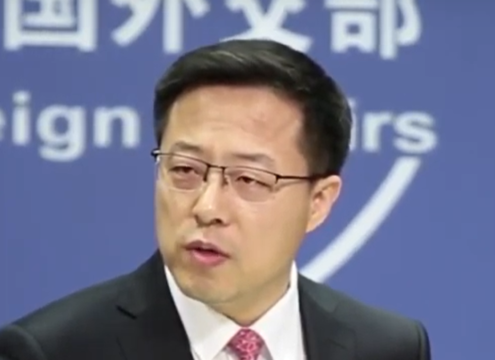
How Does Debt Affect Ecuador-China Relations?
A Latin America Advisor Q&A featuring experts’ views on China-Ecuador relations.
United States | Director, Asia & Latin America Program, Inter-American Dialogue
This post is also available in: Spanish
Margaret Myers is director of the Asia & Latin America Program at the Inter-American Dialogue, adjunct researcher with the Núcleo Milenio sobre los Impactos de China en América Latina (ICLAC), senior advisor to the United States Institute of Peace, and a global fellow at the Woodrow Wilson Center. She established the Dialogue’s China and Latin America Working Group in 2011 to examine China’s growing presence in Latin America and the Caribbean. Myers also developed the China-Latin America Finance Database, the first publicly available source of empirical data on Chinese state lending in Latin America, in cooperation with Global China Initiative at Boston University’s Global Development Policy Center.
In addition to maintaining the Dialogue’s China and Latin America and 美洲对话 blogs, Myers has published numerous articles on Chinese leadership dynamics, international capital flows, Chinese agricultural policy, and Asia-Latin America relations, among other topics. The Political Economy of China-Latin America Relations and The Changing Currents of Trans-Pacific Integration: China, the TPP, and Beyond, her co-edited volumes with Dr. Carol Wise and Dr. Adrian Hearn, respectively, were published in 2016. Myers has testified before the House Committee on Foreign Affairs, the Senate Finance and Foreign Relations Committees, and the US-China Security and Economic Commission on the China-Latin America relationship. She is also regularly featured in major domestic and international media, including the Economist, Financial Times, New York Times, The Wall Street Journal, El Comercio, El País, Folha de São Paulo, CNN en Español, and BBC. In 2018, she was identified by Global Americans as part of the “new generation of public intellectuals.”
Before arriving at the Dialogue, Myers worked as a Latin America analyst and China analyst for the US Department of Defense, during which time she was deployed with the US Navy in support of Partnership of the Americas. Myers has also worked as a senior China analyst for Science Applications International Corporation; a consultant for the Inter-American Development Bank; a faculty member at Georgetown University, the George Washington University, and Johns Hopkins SAIS; a mentor for the Indian Foreign Policy Research Institute’s School of Foreign Policy; and for Fauquier County Schools, where she developed the county’s first Mandarin language program. Myers received her bachelor’s degree from the University of Virginia and conducted her graduate work at The George Washington University, Zhejiang University of Technology, and the Johns Hopkins University/Nanjing University Center for Chinese-American Studies. Myers was a Council on Foreign Relations term member. She was also the recipient of a Freeman fellowship for China studies, a Fulbright Specialist grant to research China-Colombia relations in Bogotá, and a Woodrow Wilson Center fellowship to write a forthcoming book on China-Latin America relations.
A Latin America Advisor Q&A featuring experts’ views on China-Ecuador relations.
Margaret Myers, director of the Asia & Latin America Program, was interviewed by Esteban Lafuente of La Nación on the challenges and opportunities resulting from China’s shifting engagement with the region.
China’s attempted economic recalibration has already reverberated across the Latin American and Caribbean region, as many countries see new interest from Chinese companies in emerging industries. Asia & Latin America Program Director Margaret Myers considers the increasingly uncertain role of Central America in this new equation.
China’s 3rd Plenum sets the course for Chinese economic policy over the next five years. What will China’s plans mean for Latin America?
Sharp-edged messaging from Chinese diplomats featured prominently in China’s global communications in the early months of the Covid-19 pandemic.
Beyond humanitarian motives, China’s pandemic aid has aimed to achieve multiple other objectives.
Much of what China is doing in Nicaragua is part of a broader strategy that we see throughout the region. Some of these projects seem very aligned with China’s economic objectives, which are to find markets, even in smaller countries like Nicaragua.
[The BRICS summits] have amounted to a litmus test of these countries resolved to measurably change the status quo, and are also of course a test of the extent of consensus among countries with what really are increasingly disparate interests.




